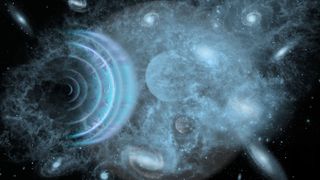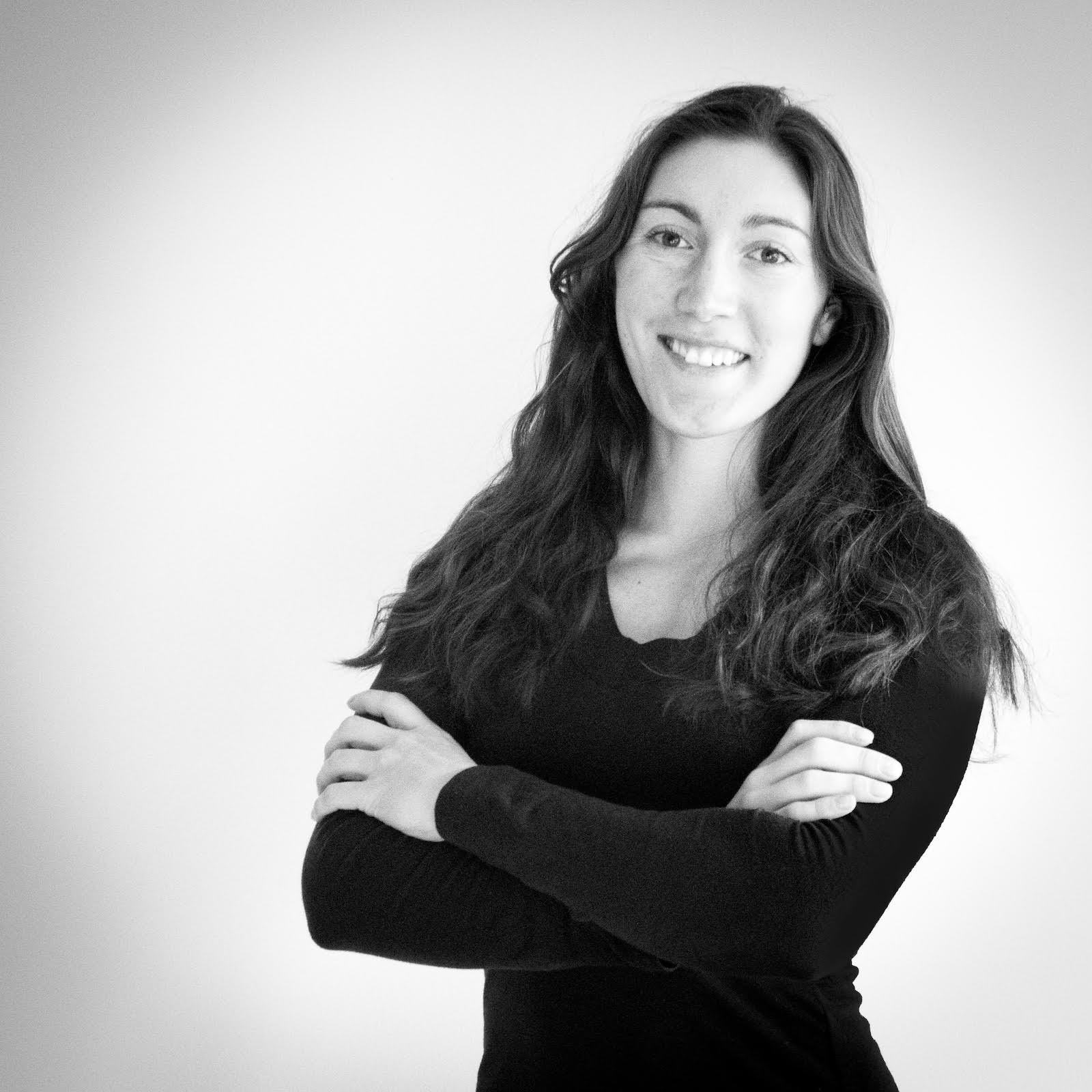Can the universe learn?
A team of scientists thinks the answer is "yes."

The universe could be teaching itself how to evolve into a better, more stable, cosmos. That's the far-out idea proposed by a team of scientists who say they are reimagining the universe just as Darwin revamped our view of the natural world.
The controversial new idea attempts to explain why the laws of physics are as we see them using a mathematical framework to describe various proposed theories in physics, such as quantum field theories and quantum gravity. The result is a system similar to a machine-learning program.
Scientists have discovered numerous physical laws and quantities with fixed values to define the universe. From the mass of an electron, to the force of gravity, there are many specific constants in the universe that seem arbitrary to some, given their precise and seemingly patternless values.
Related: The 18 biggest unsolved mysteries in physics
"One of the goals in fundamental physics these days is to not just understand what the laws of physics are, but why they happen to be the way they are, why they take the forms that they do," said author William Cunningham, physicist and software lead at quantum computing start-up Agnostiq. "There's not really an obvious reason why one [set of laws] would be preferred over another."
A self-taught system
To answer this question the group wondered whether the way we see the universe today is just one way the universe has been? Perhaps the laws we see today are just one iteration of many. Perhaps the universe is evolving.
In order to have a universe that evolves, the researchers proposed an idea called the autodidactic universe — a universe that is self-learning. In this case, the learning would happen similar to how a machine-learning algorithm works, where feedback at one stage influences the next, with the goal of reaching a more stable energy state. .
Sign up for the Live Science daily newsletter now
Get the world’s most fascinating discoveries delivered straight to your inbox.
Related: From Big Bang to present: Snapshots of our universe through time
Following this idea, the group developed a possible framework by which the universe could learn, drawing on matrix mathematics — a way of doing mathematics arranged in rows and columns — neural networks and other machine-learning principles. In short, they investigated whether the universe could be a learning computer.
"We're trying to change the conversation much the way that Darwin the biologist had to change the conversation to get a deeper understanding for the subject," said author Lee Smolin, a physicist at the Perimeter Institute for Theoretical Physics, in Waterloo, Canada.
A Darwinian universe
Similar to how a moth can evolve to have better camouflage, an autodidactic universe could be evolving to a higher state — which in this case could mean one that is in a more stable energy state.According to the mathematical framework the researchers developed, this system could only move forward, with each iteration creating a better, or more stable universe than before. The physical constants we measure today are only valid now and may have been different values in the past.
The team found that certain quantum gravity and quantum field theories known as gauge theories — a class of theories that aim to form a bridge between Einstein's theory of special relativity and quantum mechanics to describe subatomic particles — could be mapped or translated in the language of matrix mathematics, creating a model of a machine-learning system. This connection showed that in each iteration or cycle of the machine-learning system, the outcome could be the physical laws of the universe.
"We're trying to change the conversation much the way that Darwin the biologist had to change the conversation to get a deeper understanding for the subject."
Lee Smolin, Perimeter Institute
The learning framework, described in their paper posted to the preprint database arXiv, represents the first "baby steps" to the idea, according to the group. However, with more work, the team could create a full-fledged model of the universe that could open new doors to understanding our cosmos.
"One exciting prospect is that you could use one of these models and perhaps extract something new," Cunningham said. This could be discovering the physics for a new type of black hole, or a new law describing a physical system that hasn't yet been explained, such as dark energy.
However, not all researchers are as excited by the new idea. Tim Maudlin, a professor of philosophy at New York University, who was not involved in the new work, asserts there's no evidence for the concept and plenty against it, such as that certain laws of physics that have been measured are the same today as they were shortly after the Big Bang. Additionally, if the laws of the universe are evolving, Maudlin thinks there must be a larger immutable set of laws that governs that change, which negates the idea of a self-taught system.
"When we look at the fundamental laws — like Schrödinger's equation or general relativity — they don't look random at all," Maudlin told Live Science. "They can be written down mathematically in very tightly constrained ways with not a lot of adjustable parameters."
Peter W. Evans, a philosopher at the University of Queensland in Australia, who was not involved in the new study, was also not initially won over by the new work; but Evans agrees with taking the time for unorthodox approaches to radical questions like "Why is the universe the way it is?" Such approaches, even if not fruitful themselves, might lead to unexpected ideas, which could open new doors for learning about the universe, he told Live Science in an email.
The researchers behind the new study acknowledge that their work is only preliminary and not intended as a final theory, but rather a way to start thinking about things in a new way. Ultimately, while the paper doesn't come to any conclusions on exactly what kind of model could be used to describe our universe, it does pose the possibility that the universe could learn.
"I think at the end of this, we're left with a lot of open questions and certainly we were not able to prove anything," Cunningham told Live Science. "But what we were really aiming for is to start a discussion."
Originally published on Live Science.

Mara Johnson-Groh is a contributing writer for Live Science. She writes about everything under the sun, and even things beyond it, for a variety of publications including Discover, Science News, Scientific American, Eos and more, and is also a science writer for NASA. Mara has a bachelor's degree in physics and Scandinavian studies from Gustavus Adolphus College in Minnesota and a master's degree in astronomy from the University of Victoria in Canada.
